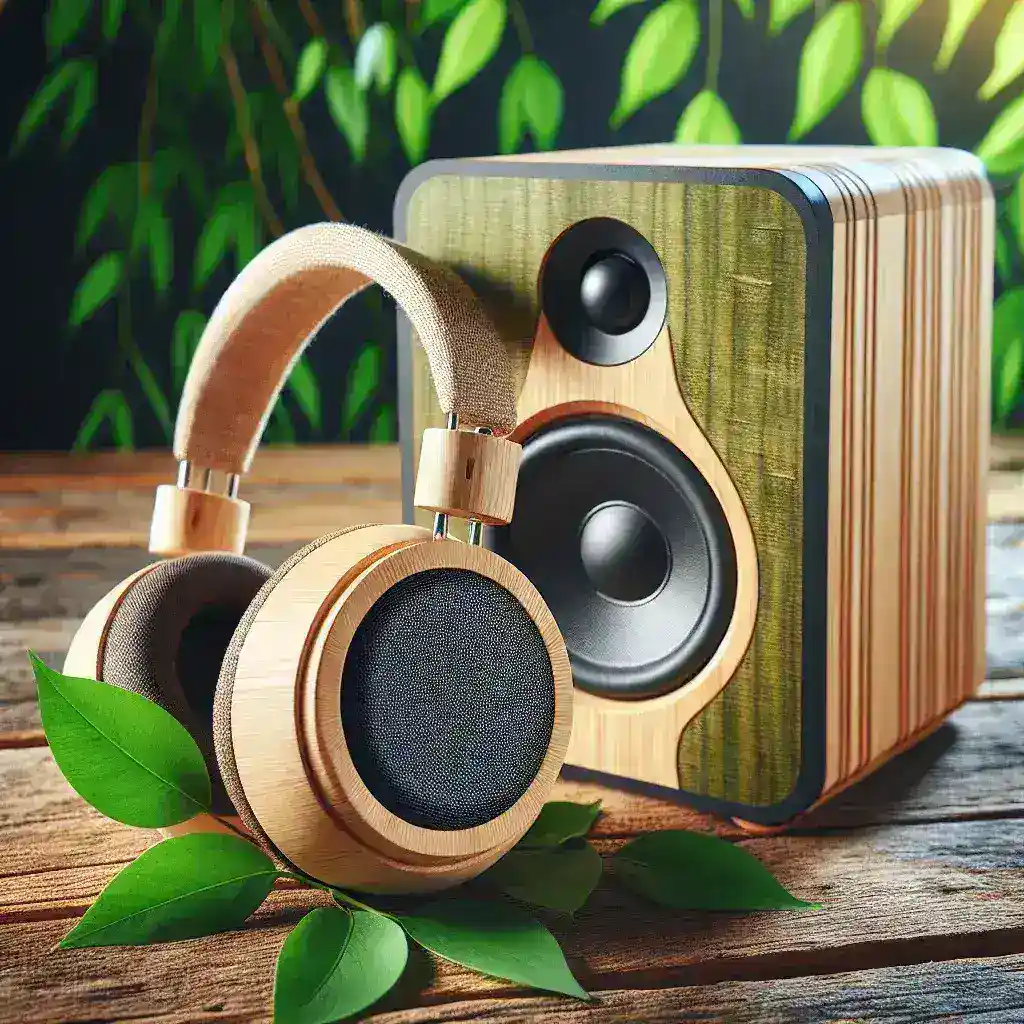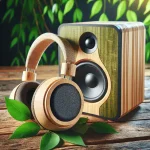Introduction
As the world continues to grapple with environmental challenges, consumers are increasingly seeking sustainable products that align with their values. In the realm of audio gear, headphones and speakers are no exception. The shift towards sustainability in audio technology not only benefits the planet but also enhances the listening experience. This article delves into the importance of sustainable audio gear, highlighting environmentally conscious headphones and speakers, their benefits, and what to look for when making eco-friendly choices.
Understanding Sustainable Audio Gear
Sustainable audio gear refers to headphones and speakers designed with environmental consideration in mind. This includes products made from recycled materials, energy-efficient components, and those that promote ethical manufacturing practices. By choosing sustainable audio gear, consumers can enjoy high-quality sound while minimizing their ecological footprint.
The Importance of Sustainability in Audio Technology
The audio industry has a significant impact on the environment, from the extraction of raw materials to the manufacturing process and eventual disposal of products. The following points highlight why sustainability should be a priority:
- Resource Conservation: Traditional audio equipment often relies on non-renewable resources. Sustainable options prioritize recycled and renewable materials, reducing the demand for virgin resources.
- Waste Reduction: Many audio products end up in landfills, contributing to electronic waste. Sustainable gear is designed for longevity and recyclability, helping to combat this issue.
- Energy Efficiency: Environmentally conscious audio gear often incorporates energy-efficient technologies that reduce power consumption and lower carbon emissions.
Key Features of Environmentally Conscious Headphones and Speakers
When selecting sustainable audio gear, consider the following features that indicate a commitment to environmental responsibility:
1. Materials
Look for products made from recycled plastics, biodegradable materials, or sustainably sourced wood. Brands that prioritize eco-friendly materials demonstrate a commitment to reducing environmental impact.
2. Energy Efficiency
Choose headphones and speakers that are energy-efficient, utilizing features such as low-power consumption and the ability to operate for extended periods without frequent charging.
3. Ethical Manufacturing Practices
Research brands that follow fair labor practices and have transparent supply chains. Supporting companies that treat their workers well is an integral part of sustainable consumerism.
4. Durability and Repairability
Invest in gear that is built to last, reducing the need for replacements. Additionally, consider brands that offer repair services or sell replacement parts, further extending the product’s lifecycle.
Benefits of Choosing Sustainable Audio Gear
Opting for environmentally conscious headphones and speakers comes with several advantages:
- Enhanced Audio Quality: Many sustainable brands focus on high-quality sound, ensuring that eco-friendliness does not compromise the listening experience.
- Positive Impact: Purchasing sustainable products contributes to a circular economy and supports companies that prioritize the planet.
- Unique Design: Eco-friendly audio gear often features innovative designs and unique aesthetics that set them apart from conventional products.
Top Sustainable Audio Brands to Consider
Here are some brands that are leading the charge in sustainable audio technology:
1. House of Marley
House of Marley is renowned for its commitment to sustainability, using materials like bamboo, recycled plastics, and natural wood in their headphones and speakers. Their products not only deliver impressive sound quality but also support environmental initiatives.
2. Sony
Sony has made significant strides in sustainability, incorporating recycled materials into their products and implementing energy-efficient technologies. Their commitment to reducing the environmental impact of electronics is commendable.
3. Bang & Olufsen
Bang & Olufsen offers premium audio products that emphasize craftsmanship and sustainability. Their attention to detail ensures that their products are not only stylish but also environmentally friendly.
4. Bose
Bose is continuously working towards more sustainable practices, focusing on energy efficiency and durable designs. Their commitment to quality sound is matched by an effort to minimize environmental impact.
The Future of Sustainable Audio Gear
As consumer awareness of environmental issues grows, the demand for sustainable audio gear is expected to rise. The future may see advancements in the following areas:
1. Innovative Materials
Expect to see more products made from biodegradable materials and bioplastics, as manufacturers explore new ways to reduce their carbon footprints.
2. Enhanced Recycling Programs
Brands may implement take-back programs that allow consumers to return old products for recycling, further reducing electronic waste.
3. Smart Technology Integration
Smart technology can play a vital role in sustainability, with features that monitor energy consumption and optimize performance, ensuring minimal environmental impact.
Conclusion
Choosing sustainable audio gear is not just about making ethical purchases; it’s about embracing a lifestyle that values the planet. Environmentally conscious headphones and speakers offer the perfect blend of quality, style, and sustainability. By supporting brands that prioritize eco-friendly practices, consumers can contribute to a healthier planet while enjoying the music they love. So next time you’re in the market for audio gear, consider how your choice can make a difference.







Leave a Reply